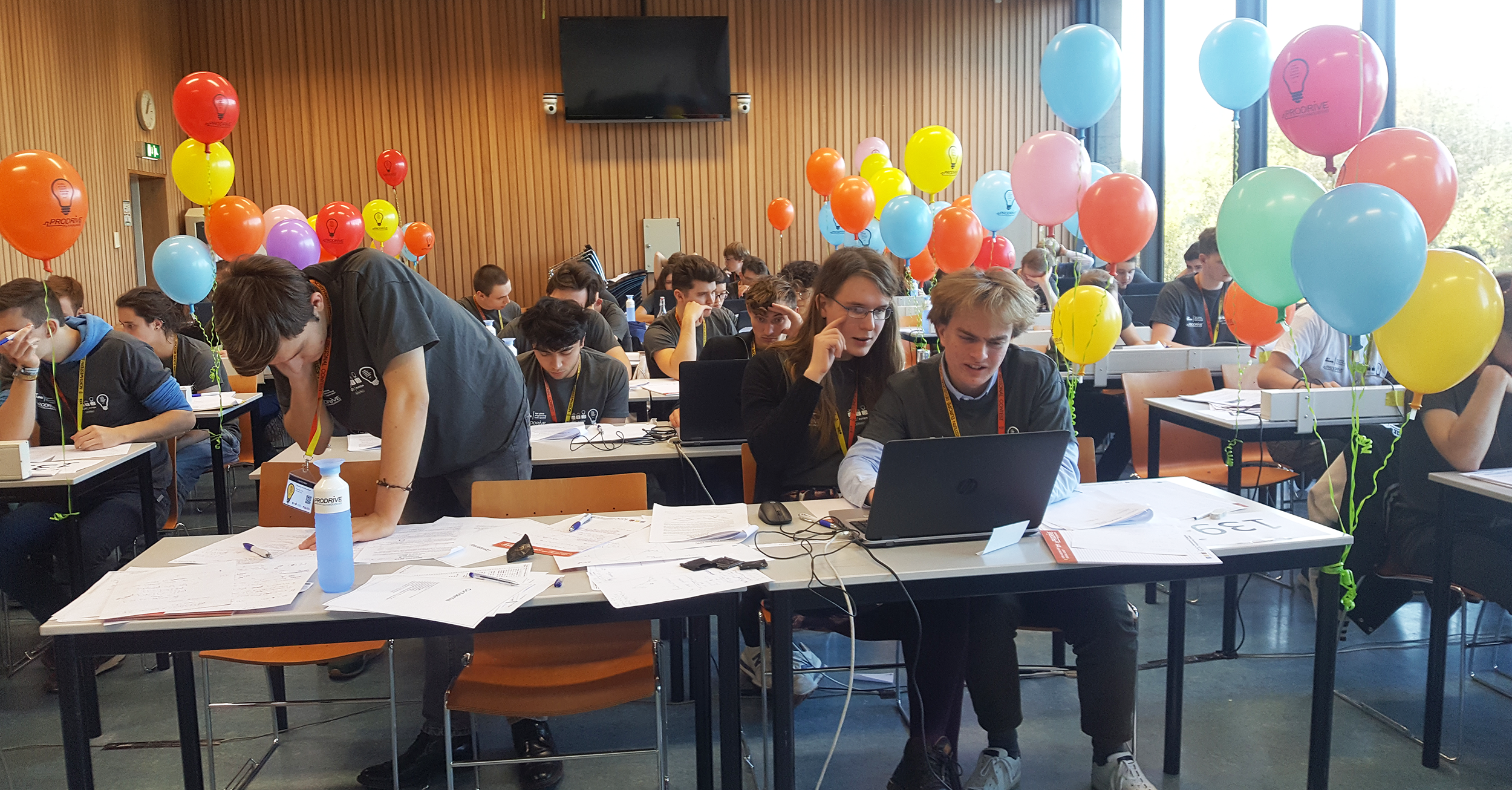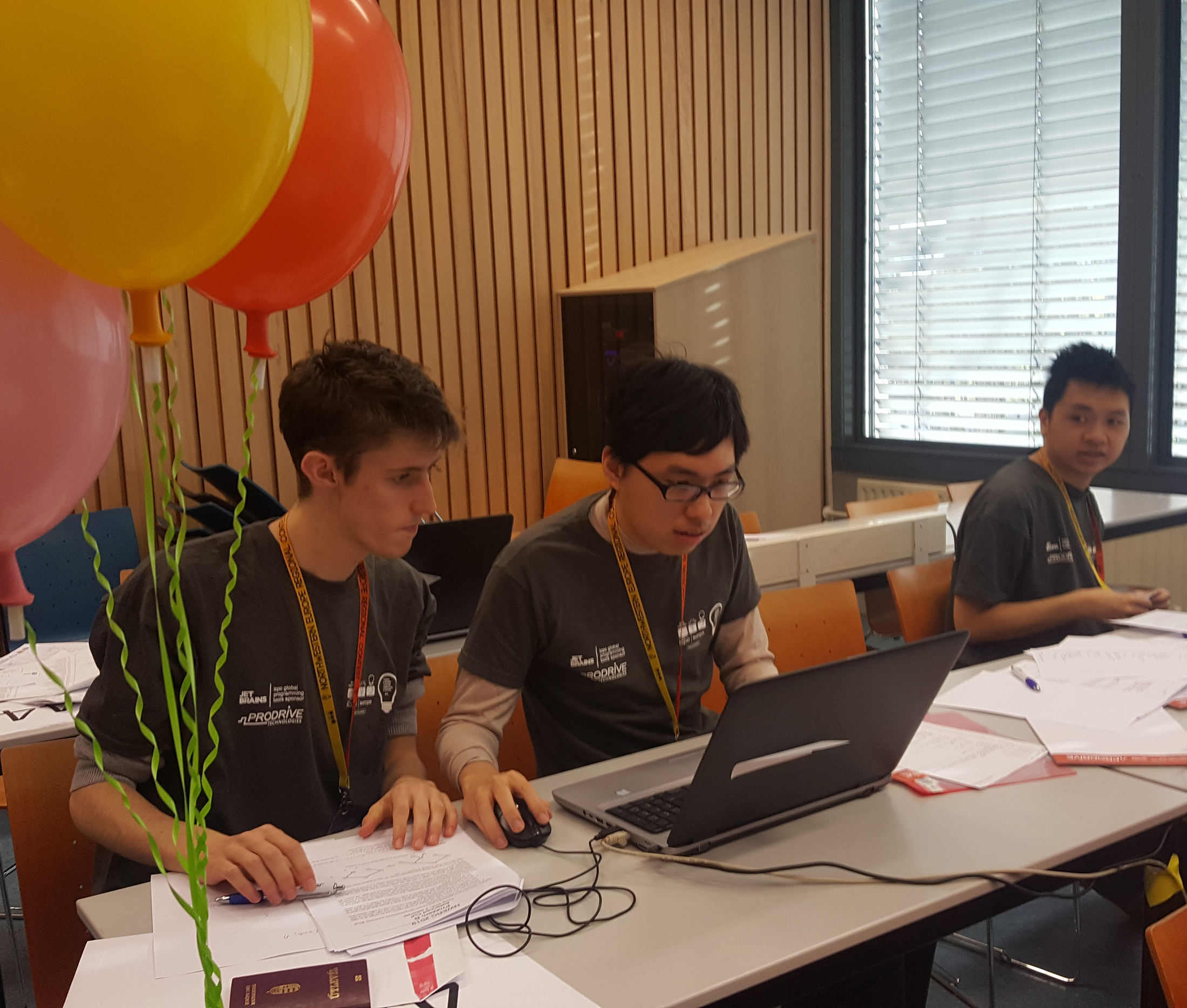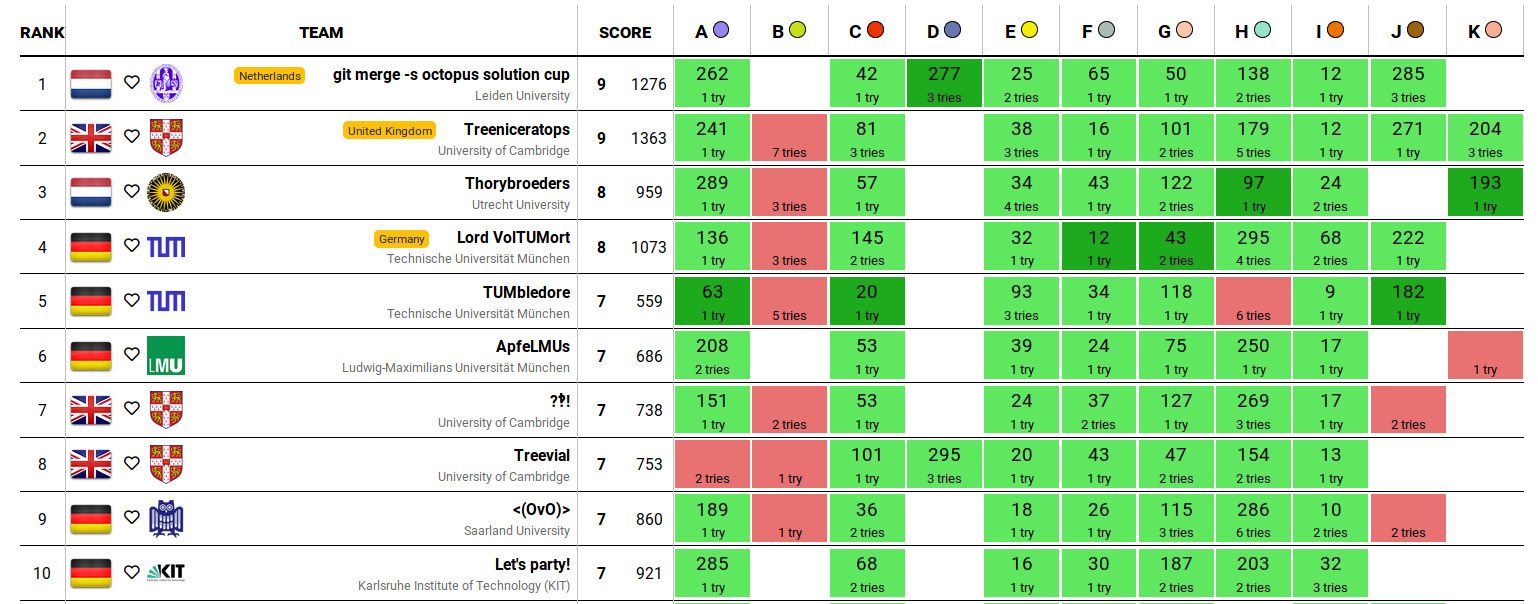Submitted by Jonathan Goddard on Wed, 20/11/2019 - 16:27
Three teams of Cambridge students enjoyed success at the Northwestern Europe Regional Contest (NWERC) in Eindhoven last weekend.
The Cambridge teams were amongst the most successful at the contest, coming in second, seventh and eighth place among 123 teams. The annual competitive programming contest sees teams of up to three university students aim to design algorithms to solve programming problems.
Team Treeniceratops, consisting of Maja Trela, Kacper Walentynowicz and David Wärn, finished second. They will attend the world final in Moscow between 21 and 26 June next year.
Team ?‽! placed seventh, and is made up of Dušan Živanović, Vladimir Milenković and Dimitrije Erdeljan. Teammates Jeck Lim, Zoltán Molnár Sáska and Choong Yin Howe make up the third Cambridge team Treevial, which came eighth.

The Treeniceratops team hard at work during the competition
All three teams have strong ties with Trinity College, with all team members being either current or former students of the college. Triniceratops (with a slightly different team composition and name) also excelled last year in the 2018 contest and placed first in the national round.
The Northwestern Europe Regional Contest is part of the larger global International Collegiate Programming Contest (ICPC), a long-running contest that was established in 1977 and sees tens of thousands of participants every year. Participating teams represented sixty universities from ten countries, including the UK, Ireland, Germany, Sweden and the Netherlands.
These three teams also gave an excellent performance in the national round of this high-profile programming competition, which was held a few weeks ago in October and was hosted at the Department’s own William Gates Building. Their success in the national round led to entry in the Northwestern Europe round, the semi-final, held in Eindhoven in November.
After winning second place in the Eindhoven semifinal, Team Treeniceratops has qualified for the world final, which will be held in Moscow next June. All the Cambridge teams received gold and silver medals.

PhD student Andrej Ivaskovic supported the teams as a coach, and helped organise the national round in Cambridge.
"I am very proud of the results of the Cambridge teams. They are all experienced competitive programmers, as many of them have previously competed in this contest and other competitive programming events.
There are many skills that need to be juggled in order to achieve top results such as these. Coding, problem solving and proficiency with algorithms are expected, but time management and teamwork are essential. This is reinforced by the unique scoring system at these kinds of contests, which is based on time taken to solve a problem and the number of incorrect submissions for any given problem.
The competition was hard this year: there were 11 problems that the contestants attempted in the span of five hours, and no team managed to solve more than nine. One question did not have a single correct submission by any of the teams.
I am delighted to say that I supervised a majority of the Cambridge participants in some of their undergraduate subject, who have shown a high level of academic aptitude and responsibility as well."
The final results for the competition:


